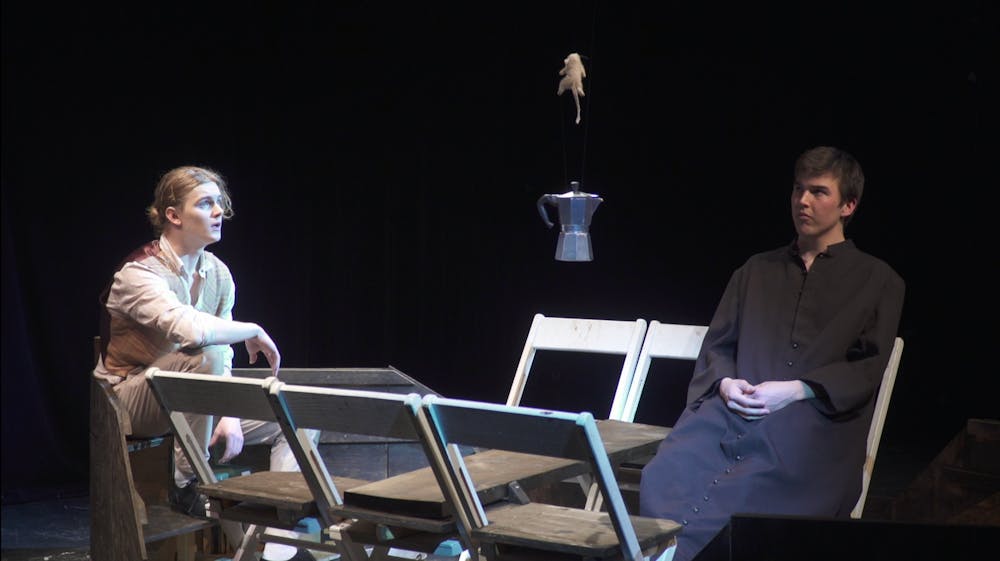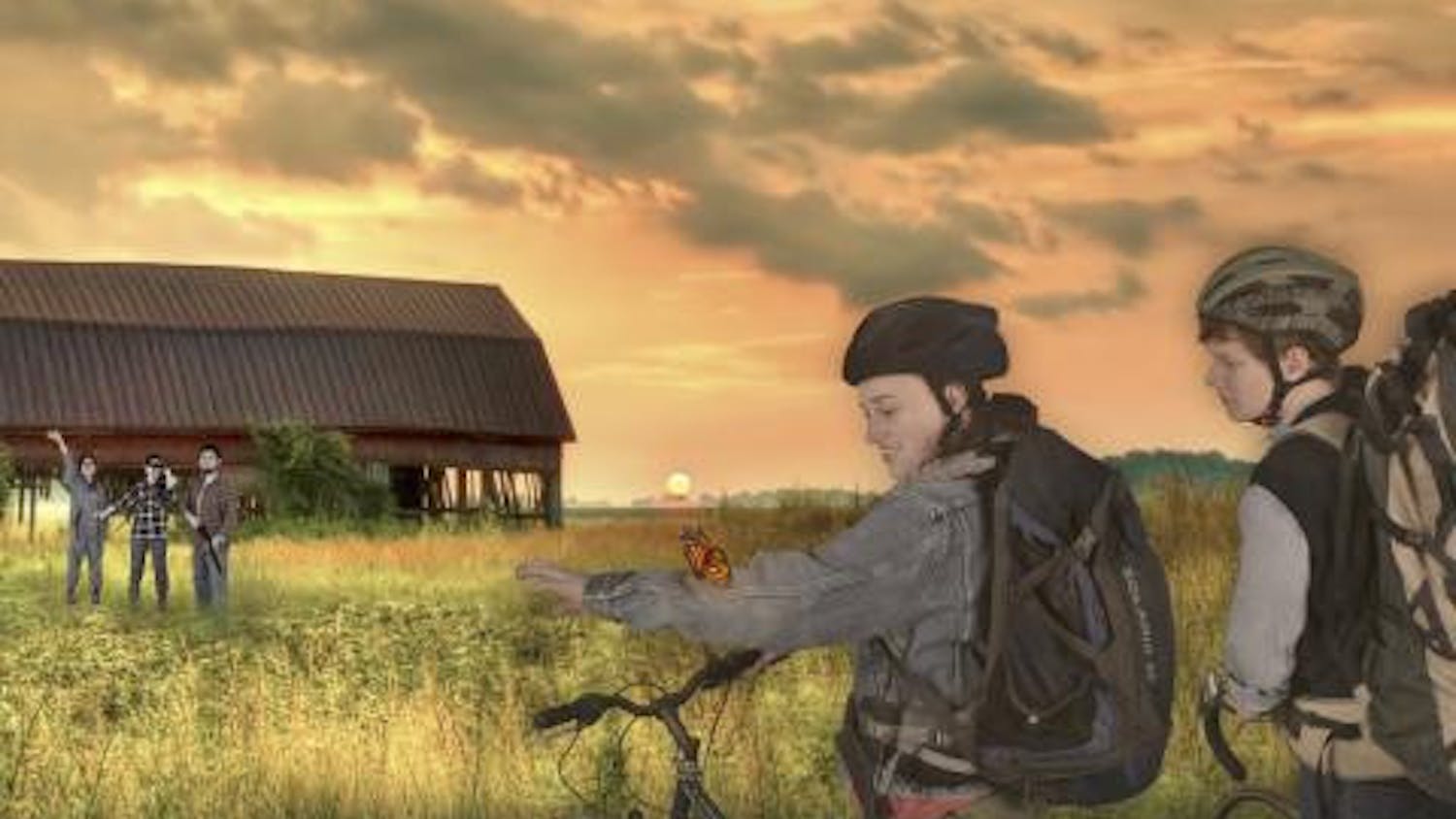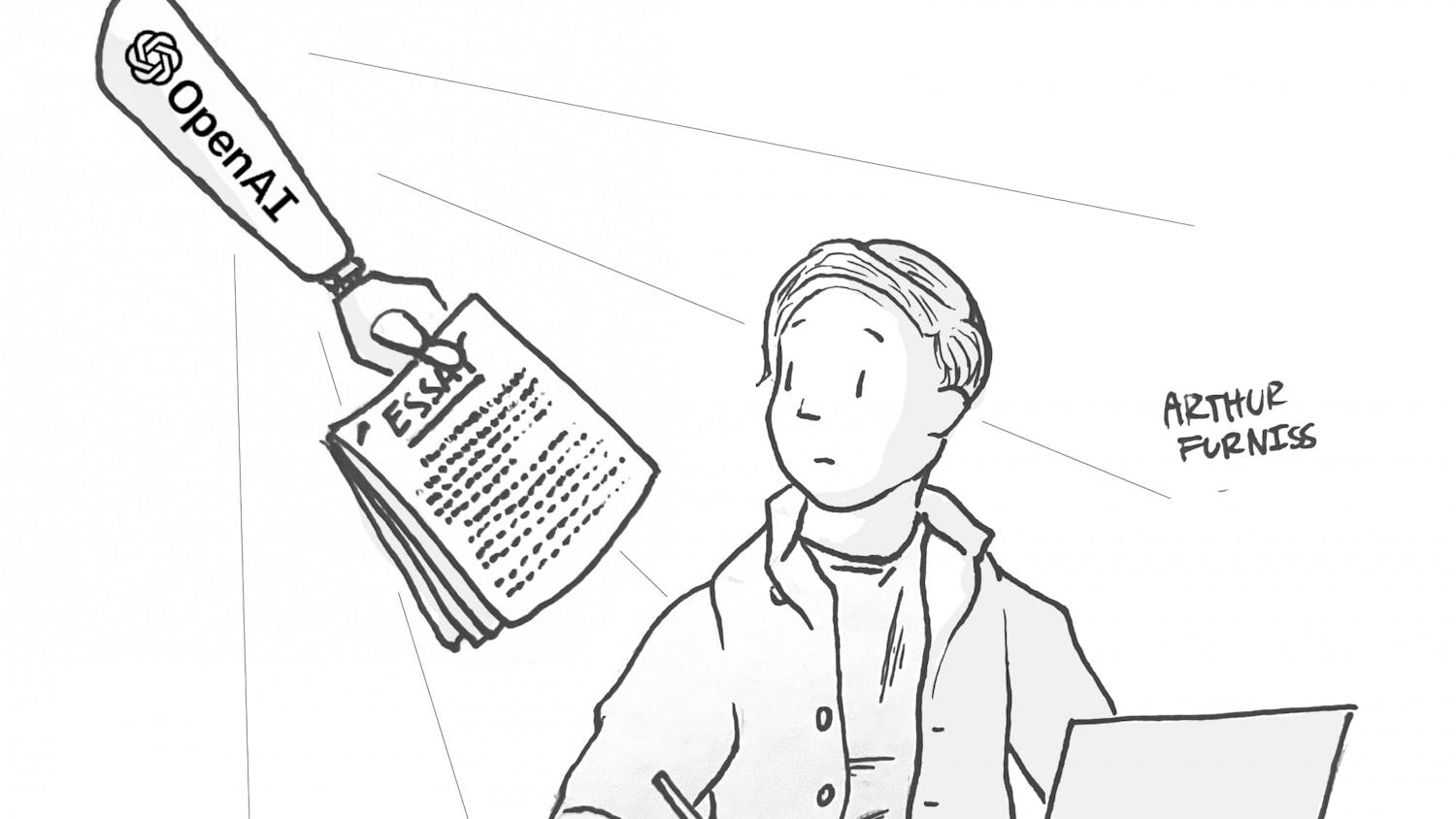The sold out show “ROSPO,” meaning toad in Italian and named for the toad metaphor around which the play revolves, took the stage of Hepburn Zoo during April Fools’ weekend as the first ever play and brainchild of writer and director Joey Disorbo ’25.5. The programs that waited on each audience-member’s seat offered a glimpse into the year of preparation that has gone into this play — from the writing, to the audition process, to the plethora of toad stickers that have been spread around campus. Many student-run productions that exist outside of the Department of Theatre tend to be improv-adjacent or somewhat haphazard in their preparation, but this play was both introspective and staggeringly detailed. And while Theater majors are asked to focus on one element of play making for their senior work, Disorbo, a sophomore, did it all himself.
The play opens to the characters of Tony and John (who remain nameless until the final 20 minutes of the play), a layperson and priest respectively who have recently been shipwrecked on a journey from Brazil. With direct references to “Life of Pi” and “Emma,” and various looser allusions to other famous characters and books, the play starts off as what feels like a predictable story of two unalike companions finding friendship in a journey home. However, “ROSPO” claims its own identity entirely through a variety of trials which face Tony and John, largely culminating in the deification of a rat named Margaret (an event which is narrated by God, played by August Siegel ’25).
The arguable climax of the play comes after Margaret has been trapped and named by the two castaways, and she is suddenly assumed into heaven, floating up above Tony and John and asking each of them to question whatever they knew of religion before. While Tony — played by Alex Halaby ’25 with a successfully self-deprecating attitude that makes his story-arc all the more enjoyable but all the less believable — finds God, John — former priest played by Peter McClearn ’25 with a level of somberness that feels applicable — loses his faith.
The play ends with Tony entering the very seminary that John has left, and with John encountering both Tony’s ex-wife Brenda (Curran Amster ’26) and God on the very same bus-stop bench. It is here wherein the toad metaphor enters the plot, with Brenda offering John an ominous piece of advice to take with him on his journey. “Not even the dirtiest, foulest toad is irredeemable in the eyes of the truly righteous,” she declares.
As for where such a metaphor comes from, Disorbo remains elusive. “Nobody believes me when I tell them that it’s not nearly as deep as they think. It really was a decision rooted in intuition. Although, there are reasons that I chose the toad specifically, none of which I will ever disclose,” said Disorbo.
“ROSPO” ends after a final conversation between God and John, wherein God explains to a distraught John that the only thing that differentiates humans from God’s other creatures is choice. “So choose,” says God, and the stage lights fade before the audience learns if John has the courage to do so.
“The play ends before he makes his decision because I never found out what he decided to do,” explains Disorbo.
As for the actors themselves, they were offered an unusual level of agency in developing their characters and dictating their perception.
“Joey helped us work through how we wanted lines to sound, how we wanted to shape our characters, what we wanted to change and what felt best for us. It was totally collaborative, which was very fun,” said Sam Marquis ’25, who played a priest.
In terms of the process, the actors had nothing but praise for their director. “Joey knew what was best all along, but sometimes during rehearsal we would discover something for a character that was better for the show, and Joey would roll with it. I certainly participated in developing my character more than in any other production I’ve been involved in,” reflected Josh Harkins ’25, who played a higher priest in the seminary to which Marquis and the two main characters belonged.
It is clear that Disorbo’s lack of experience with playwriting and playmaking did not hold him back — it almost seems to have resulted in being more committed to the product. “‘ROSPO’ was not the product of any creative writing habit. What happened was that I had decided in April of 2022 that I was going to write and produce a play for the Hepburn Zoo. I had no idea what it was going to be about — I just knew I was going to do it. To put it succinctly, the play didn’t emerge from writing habits; writing habits emerged from the need to put on a play,” explained Disorbo.
“I don’t necessarily aspire to write plays, and many of our actors don’t necessarily aspire to be actors. It is rather simple, really: we are in it for fun. There’s nothing better to be in it for.”




